Report: The BEARR Trust Autumn Lecture – October 14, 2025
Report by BEARR Trustee Sam Thorne
Lecture title: “Is it all over for the rules-based international order?”
Speakers: Dr Bobo Lo and Kadri Liik
Moderated by Sir Roderic Lyne
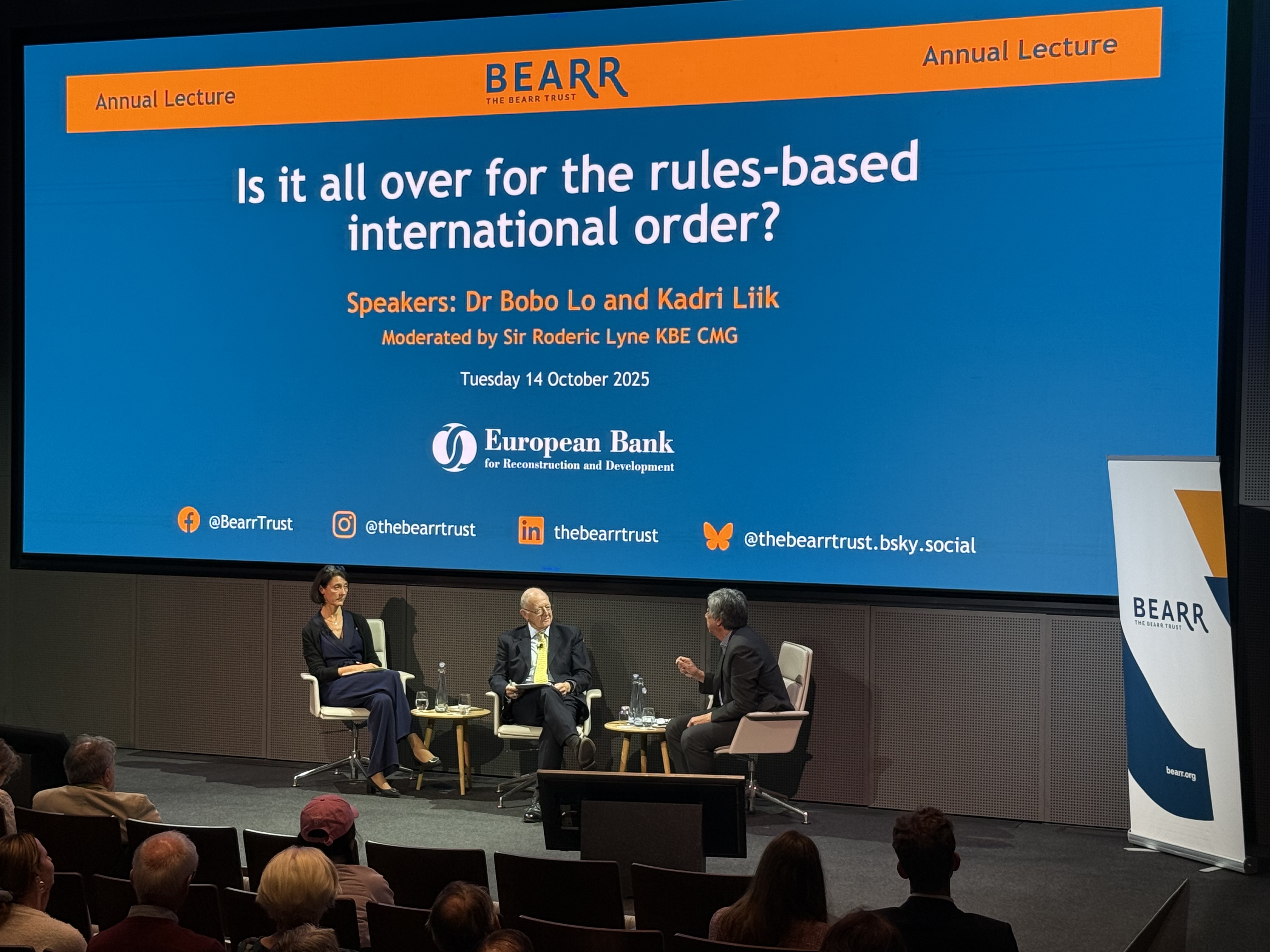
The BEARR Trust Autumn Lecture 2025 featured an hour of stimulating discussion between international relations expert Dr Bobo Lo and journalist and political analyst Kadri Liik, moderated by Sir Roderic Lyne, BEARR patron and former British Ambassador to Moscow. Under the title, “Is it all over for the rules-based international order?”, the panellists explored whether the systems of global governance established after World War Two, and the US-led world order that prevailed after the end of the Cold War, were finished – and, if so, what kind of new world order (or disorder) might take their place?
The BEARR Trustees were very grateful once again to the European Bank for Reconstruction and Development (EBRD) for sponsoring and hosting the lecture at their London headquarters. In his opening remarks, the EBRD’s Alex Pivovarsky pointed out that the bank was at once a product of, contributor to and beneficiary of a rules-based international order. As such, it has been majorly affected by the breakdown of international rules, particularly with regard to Russia’s annexations of Ukrainian territories in 2014 and its later full-scale invasion of Ukraine. The answer to the question of whether a rules-based international order can be reestablished will therefore be pivotal to EBRD’s future reconstruction and development work in Ukraine and other countries around the world.
The lecture was attended by around 130 people. A recording of the event can also be viewed on BEARR’s YouTube channel here. As usual, all proceeds will contribute to the ongoing work of BEARR and our partner organisations across Eastern Europe and Central Asia. Introducing the event, BEARR Chair of Trustees Ross Gill highlighted the scale of challenges facing our partners and why BEARR’s support to them is more important than ever. Ross also reminded everyone that this was Dr Lo’s second BEARR annual lecture, following a talk on “Russia and the New World Disorder” in 2011, also moderated by Sir Roderic and held at the EBRD: we appreciate these long associations.
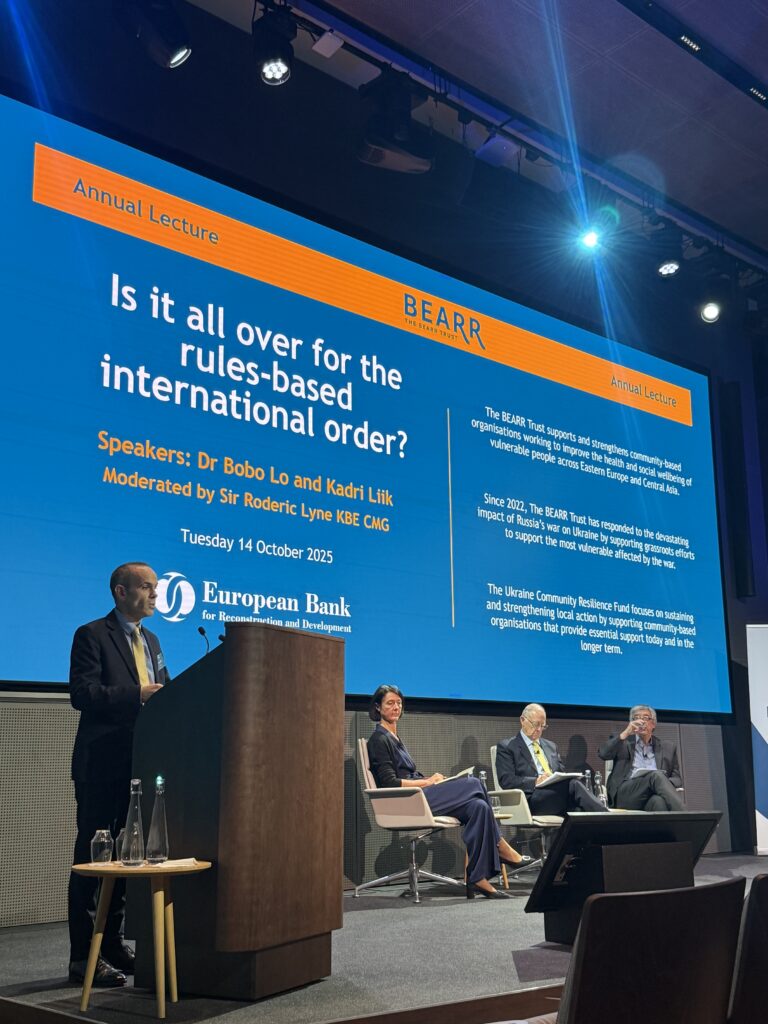
Dr Lo started the discussion with some reflections derived from his upcoming book, The Disorderly Society: Rethinking Global Governance in an Age of Anarchy. He proposed that ‘the world today is more disorderly and anarchic than at any time since the end of the Second World War’, arguing that the US-led rules-based international order has unravelled, but that no alternative had yet emerged in its place. Building a new, improved world order is therefore among the most pressing challenges of our age: a prerequisite for addressing the biggest global issues, such as climate change and rapid technological transformation.
Dr Lo advocated for a new internationalism based on three broad principles: 1. a larger view of self-interest; 2. greater representativeness and inclusiveness; 3. acceptance of flexibility and diversity. In a new world order, countries would need to recognise that their self-interest was interconnected with others’, including the interests of enemies and rivals; building empathy and understanding of the ‘other’ was crucial. More countries, particularly from the Global South, needed to be represented in global institutions. And we should dispense with the ‘illusion of universal values’, instead recognising alternative value systems and focusing more on how states behave in the international arena than domestically.
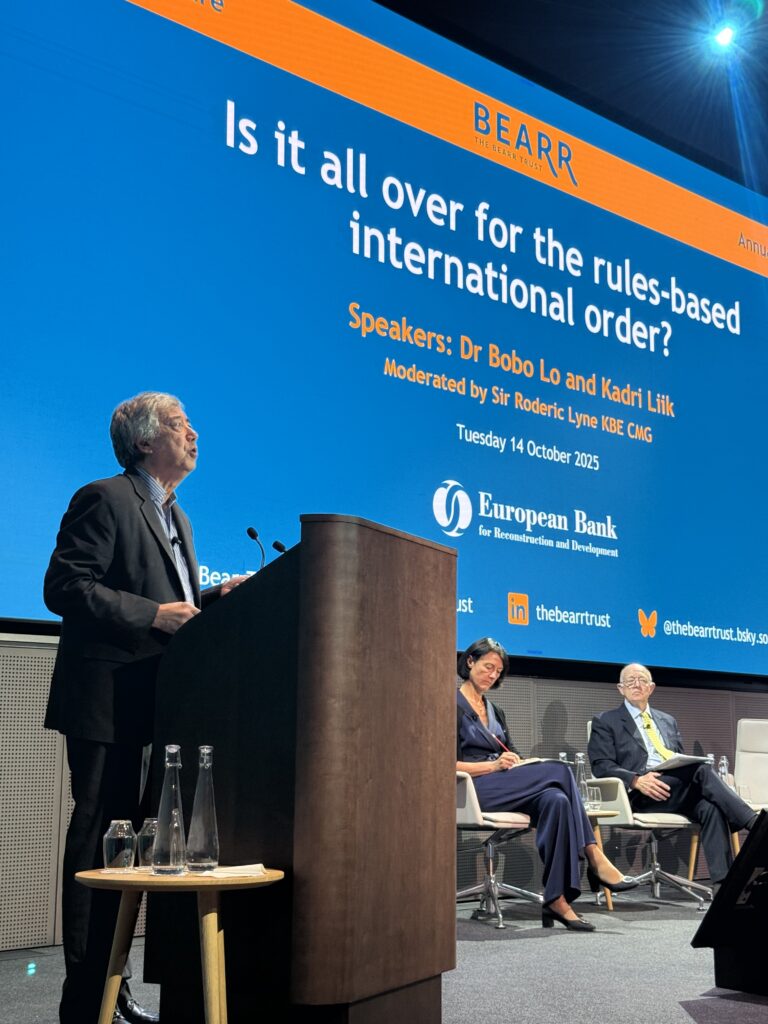
Though such a new world order may seem improbable today, Dr Lo highlighted that major change for the better can happen quickly and unexpectedly, as at the end of World War Two or the Cold War. He summed up: ‘The rules-based international order, designed and dominated by the West, is over and cannot be revived’. However, ‘a new rules-based international order is possible’, and we have ‘no choice but to attempt the enterprise’. He rejected fatalistic visions of a dystopian future: this was not inevitable, and we needed to act now to resolve our problems through international collaboration. If not, we would all go down, divided.
Kadri Liik echoed Dr Lo’s view that it was probably all over for the post-Cold War, US-led, liberal world order. She expressed concern that Europe was ill-equipped to help shape its future replacement. She described the European Union as a ‘normative power’ – perhaps the last bastion of a rules-based order, now that the United States was moving in another direction – and feared that the EU was too rigid and judgemental to navigate a world that was becoming more transactional and required a more pragmatic approach. She doubted, in particular, the capabilities of Eastern European states to influence change, given that they entered international bodies, such as the EU and NATO, as ‘rule-takers’, proud to qualify for membership, rather than being central to establishing the rules.
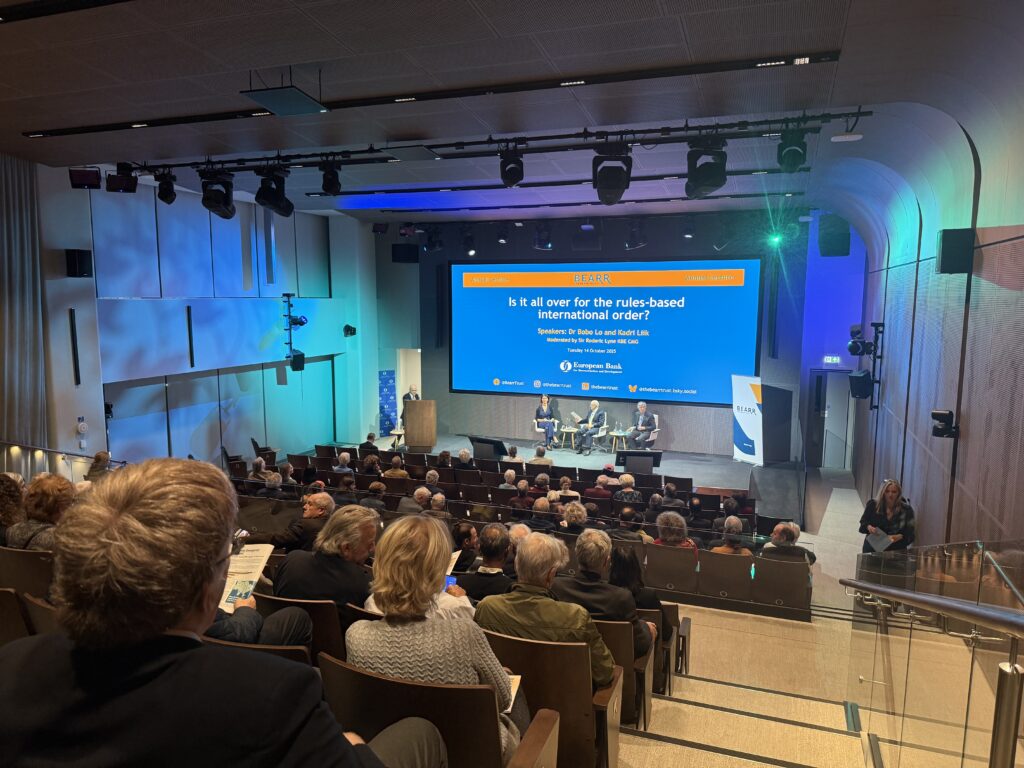
Moving into questions and answers, Sir Roderic asked whether Dr Lo’s prescriptions to deprioritise ‘universal values’ and privilege the sovereign rights of nations might appear more like a return to the pre-war Westphalian system than a progressive new world order. Kadri Liik responded that we should not give up on universal values, and should defend them staunchly at home, but that the West should give up the notion that they can reshape the world according to those values: an approach that had ultimately backfired. Other topics covered were migration, as a major driver of disorder, and the role of China in a changed world. Dr Lo linked migration to a failure in the West to engage seriously with the challenges faced by countries in the Global South or to invest the resources that they have sometimes promised to address climate change and alleviate poverty. On China, he argued that the country seeks to be a global player but not a hegemonic power like the United States. China’s ambitions and capabilities were often misjudged, he felt, particularly in Washington, and he connected this back to his earlier point about the need for states to develop more empathy, to understand the motivations and interests of others.
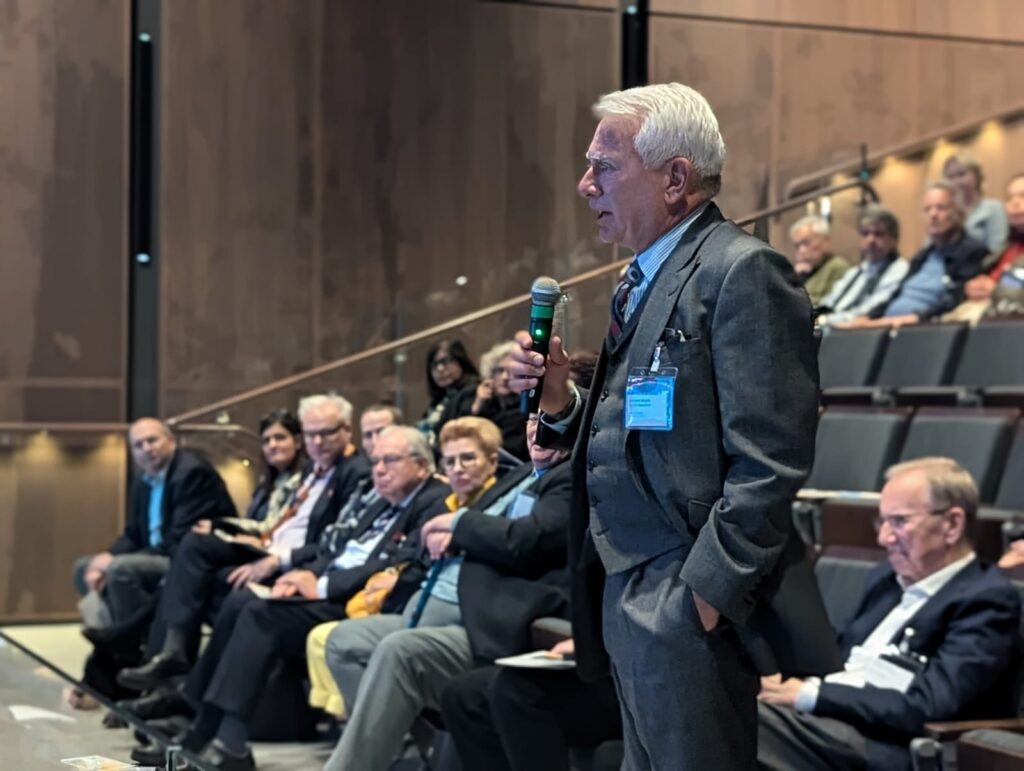
The position of Russia in a changed international order came into the frame during the audience Q&A. Kadri Liik suggested that Russia’s reported efforts to negotiate a joint global leadership role with the United States (covered in a 2024 book by the historian Sergey Radchenko) were unrealistic and impractical. US status was based on the United States being ‘attractive’, whereas Russia had comparatively little to offer other states, particularly in the 1990s. She felt that Russia could have achieved more by defining its interests in a more informed manner and pursuing a narrower set of national goals. Its subsequent rejection of the rules-based order was therefore not only a failing of the West, as is sometimes argued, but also Russia’s failing. Dr Lo enlarged on the reasons for Russia’s resentment towards the Western-led world order, including a feeling that they didn’t receive their just desserts in the 1990s, that they had ‘great power credit in the bank’, which wasn’t recognised. He suggested that Russia saw its future as the third power in the world, behind the United States and China, but still one of three geopolitical pivots. China, on the other hand, saw itself and the United States as the future preeminent powers, with Russia relegated to a group of other powers ‘several levels below’. This was one of the problems of ‘multipolarity’, Dr Lo concluded: ‘it means very different things to different people’.
On behalf of BEARR, Sir Roderic thanked the panellists, particularly to Kadri Liik who had travelled overnight from Estonia to participate in the event. The BEARR Trustees also thank those who attended and donated. If you wish to support the work of BEARR and our partners, please visit our donations page on the BEARR website here.

